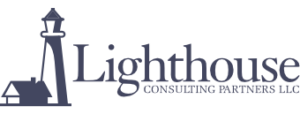How to Increase Revenues With Market Research
By Henry DeVries
“As a venture capitalist, I get pitched dozens of times every year, and almost every pitch contains ‘market research’ lies,” says Guy Kawasaki, a Silicon-Valley based author, entrepreneur, and evangelist. “I am often accused of ridiculing market research and focus groups. Guilty as charged.”
Kawasaki says useful market research can help you decide what needs attention, how to select the appropriate issues, and what strategies would address the most pain points where you have the most to gain.
“My mission is to empower entrepreneurs,” says Kawasaki. “For them I advocate real-world market research, a technique practiced by Honda, Walmart, Dupont, and other successful companies that entails sending employees at every level to observe how their products or services are actually used by customers.”
Proven market research involves listening. Chris Stiehl, an independent research consultant who calls himself “The Listening Coach,” has built a career on helping companies really listen to their prospective customers, guests and clients.
 “Your prospects are talking, but are you really listening?” asks Stiehl, a human-factors-engineer by training who has worked for the Cadillac division of General Motors, Cisco System, Pacific Gas & Electric, Cisco Systems, and even the Nuclear Regulatory Commission.
“Your prospects are talking, but are you really listening?” asks Stiehl, a human-factors-engineer by training who has worked for the Cadillac division of General Motors, Cisco System, Pacific Gas & Electric, Cisco Systems, and even the Nuclear Regulatory Commission.
Stiehl and I met when we both taught market research at the University of California San Diego, and then went on to co-author a bestselling book on market research titled Pain Killer Marketing: How To Turn Customer Pain Into Market Gain.
“At Cadillac, we spent about $20,000 on a Voice of the Customer project that saved the company $3 million per year going forward,” says Stiehl, who notes that a lack of listening is not just a North American problem. “We have conducted listening research in India, China, Brazil, Singapore, Kuala Lumpur and Switzerland, as well as Canada and the United States.”
During the journey, Stiehl and I have identified several myths that are holding companies back.
The Eight Great Myths Of Market Research
Myth # 1: Focus Groups Are The Best Way To Listen. I say down with focus groups, and I have been a focus group facilitator. Focus groups rank as the number one waste of marketing research dollars.
Myth #2: Marketing Research Is Prohibitively Expensive For Most Companies. Many people think marketing research projects cost $25,000 to $50,000, but that is not true. Typically, a small to medium sized company may invest $6,000 to $12,000 in a solid market research study. If the prospect is harder to reach, such as doctors, the price goes up. As Barack Obama said on Twitter in 2013: “If you think education is expensive, wait until you see how much ignorance costs in the 21st century.”
Myth #3: You Cannot Know The Mind Of Customers And Clients. The reality is just the opposite. You must ask and then really listen. If you want to know what customers and clients think, go have conversations with them.
Myth #4: You Need To Survey Hundreds Or Thousands To Really Know. What you really need to do is talk, not survey. A dozen one-on-one interviews will generate as many customer pain points as seven focus groups. The problem with low-cost online surveys is that results are skewed. Surveys have their place, but they must be formulated by listening to interviewees first.
Myth #5: You Have To See People Face-To-Face. In this time of pandemic, the last think you or the interviewee want is to be face to face. Reach out and touch people by phone or by Zoom. Also, these one-on-one interviews by phone or Zoom can be conducted with people in different time zones, something difficult to achieve with focus groups.
Myth #6: Interviews Cannot Go Deep. Actually, interviews allow you to probe. The depth of information obtained for each topic is actually greater in one-on-ones as well, since the moderator or facilitator does not feel the pressure to cover every topic.
Myth #7: The Key Is To find Out How The Customer Or Client Will Gain From Your Product Or Service. Actually, you want to find the pain. Pain beats gain every time. Psychologists and sociologists have repeatedly found that consumers are more motivated to avoid pain than to seek pleasure.
Myth #8: Market Research Is Above Company Politics. Sadly, this is not the case. When it comes to market research you need to skip the politicking. How does a company decide which pain points to address? In most cases, the decisions are political, based upon who claims the loudest.
During conversations with a prospect the goal should be to monopolize the listening. A good rule of thumb is to listen 80 percent of the time and talk 20 percent.
These are the three proven steps for success Stiehl and I have used when it comes to listening carefully and responding appropriately:
 Identify the issue. What is on their mind? What is their goal, what assets do they have in place, and what are their roadblocks? Ask questions to find out and listen carefully.
Identify the issue. What is on their mind? What is their goal, what assets do they have in place, and what are their roadblocks? Ask questions to find out and listen carefully.
Listen for the prospect’s mindset. This is not about good and bad people; actually, this is about how they view the world at this point in time. Are they a thinker, a doer, a struggler, or an achiever? How do they view similar products or services. Again, ask questions and listen carefully.
Respond in a way that meets what that person wants and needs. To respond appropriately requires matching your language to the mindset of the prospect. Say the appropriate words that the thinker, doer, struggler, or achiever needs to hear. Great market research can help you target the correct messages in your marketing customer service.
Active listening is the skill needed to execute this type of questioning. Active listening involves participating with the customer in the interview. When you have heard them, you must summarize what you have heard to make sure you have heard correctly.
As Tom Peters described in his book Thriving On Chaos, “Listening to customers must become everybody’s business. With most competitors moving ever faster, the race will go to those who listen (and respond) most intently.”
Pain Into Gain Market Research Riddle
Your target prospects experience their own unique frustrations and pains. As the old adage states, “People don’t care what you know, until they know that you care.” Truly identifying your prospect’s predicament tells them that you understand and empathize with them.
How will prospects hire you unless they trust you?
How, in turn, will they trust ideas they have not heard?
How, in turn, will they hear without someone to speak?
How, in turn, will you speak unless you have a solution?
How, in turn, will you have a solution unless you understand their pain?
How will you understand their pain unless you listen carefully?
How will you prove you listened unless you respond appropriately?
When you have conversations with prospects, here are ten starter market research questions you might work into the conversation:
1. Can you describe for me the “ideal” experience with a ____________ (your product or service). How do most compare to this ideal?
2. Can you describe for me a recent time that the experience was less than ideal?
3. What are the three most important aspects of doing business with a___________?
4. If I said a __________ was a good value, what would that mean to you?
5. In what ways does dealing with a _________ cost you besides money (time, hassle, effort, etc.)?
6. What is the biggest pain about working with a _________?
7. Would you recommend a _________ to a friend or colleague? Why, or why not?
8. How does working with a _________ help you save money?
9. What does a _________ do really well?
10. If you had the opportunity to work with a ________ again, would you? Why, or why not?
The magic phrase during in-depth listening sessions is this: “Tell me more.”
The Bottom Line
Finally, all of the internal and external data is combined to direct improvement to the places that can have the maximum impact on the customer relationship—in other words, where you achieve the “biggest bang for the buck.” (Note: This process is often called the House of Quality; see the May-June 1988 edition of the Harvard Business Review).
 Lighthouse Consulting Services LLC offers custom market research specializing in understanding customer wants, needs and requirements. We have designed and implemented one-on-one in-depth research studies, surveys and quantitative studies across a similar range of internal (employees) and external (customers) audiences. And sometimes we even conduct focus groups.
Lighthouse Consulting Services LLC offers custom market research specializing in understanding customer wants, needs and requirements. We have designed and implemented one-on-one in-depth research studies, surveys and quantitative studies across a similar range of internal (employees) and external (customers) audiences. And sometimes we even conduct focus groups.
These market research services can be parlayed with the other offerings from Lighthouse Consulting Business Practices Division such as talent development, in-depth work style and personality assessments, team building, sales & customer service training & workshops, presentation skills, cyber security, manufacturing workflow, IT strategies, ERP selection and CFO/COO best practices and planning. If you are open to a conversation about this, we are ready to listen to what you have to say.
Permission is needed from Lighthouse Consulting Services, LLC to reproduce any portion provided in this article. © 2021
Henry DeVries is a market research consultant with Lighthouse Consulting Services Business Consulting Division as well as an author and educator. He is the author of 14 books on marketing and writes a weekly marketing column for forbes.com. Henry has a 30-year successful track record of market research projects including business forecasting, in-depth interviews, focus group facilitation and surveys for clients such as Marriott Corporation, San Diego Padres, Foresters, The Fieldstone Company, and the University of California San Diego. Previously he was director of research and president of an Ad Age 500 advertising agency where he doubled billings from $5 million to $10 million in five years. He also served as the chief marketing officer (assistant dean) and marketing faculty member for the University of California San Diego continuing education program, where he helped raise annual non-state (private) revenues from $22 million to $45 million in seven years. On a personal note, he almost won $13,000 on the TV game show Jeopardy!, but did manage to snag $13,000 on Family Feud.
If you would like additional information on this topic or others, please contact your Human Resources department or Lighthouse Consulting Services LLC, Santa Monica, CA, (310) 453-6556, dana@lighthouseconsulting.com & our website: www.lighthouseconsulting.com.
Lighthouse Consulting Services, LLC provides a variety of services, including in-depth work style and personality assessments for new hires and staff development. Lighthouse Consulting Services, LLC can test in 19 different languages, provide domestic and international interpersonal coaching and offer a variety of workshops on team building, interpersonal communication, stress and time management, leadership training as well as our full-service Business Consulting Division. To order the books, “Cracking the Personality Code”, “Cracking the Business Code” and “Cracking the High-Performance Team Code”, please go to www.lighthouseconsulting.com.



